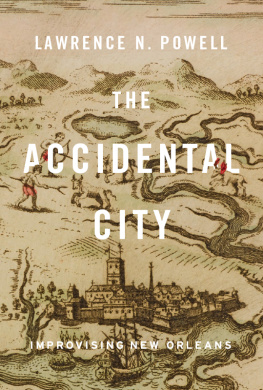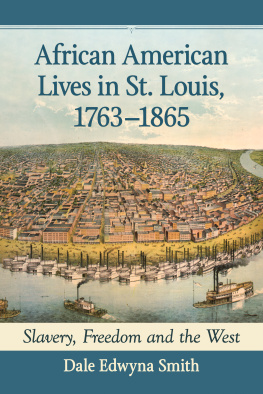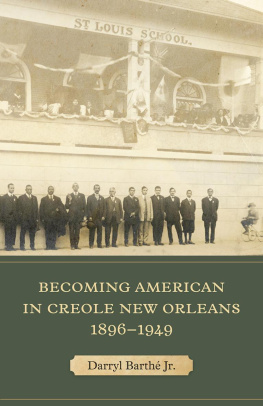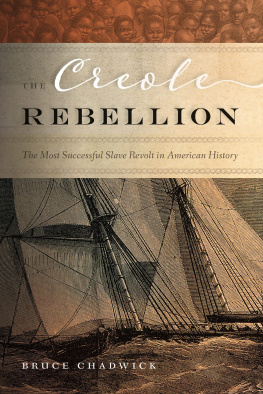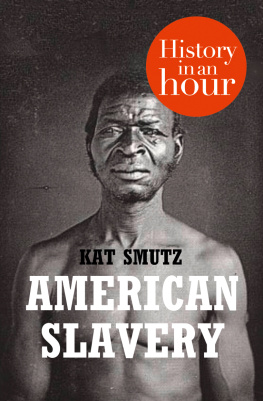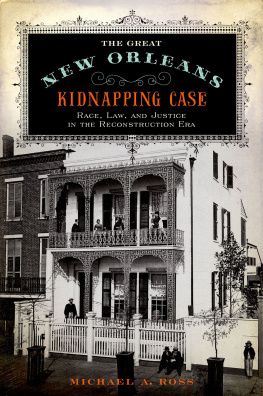Powell - The accidental city: improvising New Orleans
Here you can read online Powell - The accidental city: improvising New Orleans full text of the book (entire story) in english for free. Download pdf and epub, get meaning, cover and reviews about this ebook. City: New Orleans (La.);Louisiana;New Orleans, year: 2013;2012, publisher: Harvard University Press, genre: Detective and thriller. Description of the work, (preface) as well as reviews are available. Best literature library LitArk.com created for fans of good reading and offers a wide selection of genres:
Romance novel
Science fiction
Adventure
Detective
Science
History
Home and family
Prose
Art
Politics
Computer
Non-fiction
Religion
Business
Children
Humor
Choose a favorite category and find really read worthwhile books. Enjoy immersion in the world of imagination, feel the emotions of the characters or learn something new for yourself, make an fascinating discovery.
- Book:The accidental city: improvising New Orleans
- Author:
- Publisher:Harvard University Press
- Genre:
- Year:2013;2012
- City:New Orleans (La.);Louisiana;New Orleans
- Rating:5 / 5
- Favourites:Add to favourites
- Your mark:
- 100
- 1
- 2
- 3
- 4
- 5
The accidental city: improvising New Orleans: summary, description and annotation
We offer to read an annotation, description, summary or preface (depends on what the author of the book "The accidental city: improvising New Orleans" wrote himself). If you haven't found the necessary information about the book — write in the comments, we will try to find it.
The accidental city: improvising New Orleans — read online for free the complete book (whole text) full work
Below is the text of the book, divided by pages. System saving the place of the last page read, allows you to conveniently read the book "The accidental city: improvising New Orleans" online for free, without having to search again every time where you left off. Put a bookmark, and you can go to the page where you finished reading at any time.
Font size:
Interval:
Bookmark:
THE ACCIDENTAL CITY
THE
ACCIDENTAL
CITY
IMPROVISING NEW ORLEANS
LAWRENCE N. POWELL
HARVARD UNIVERSITY PRESS
CAMBRIDGE, MASSACHUSETTS
LONDON, ENGLAND
2012
Copyright 2012 by the President and Fellows of Harvard College
All rights reserved
Jacket image: Art Resource
Jacket design: Graciela Galup
LIBRARY OF CONGRESS CATALOGING-IN-PUBLICATION DATA
Powell, Lawrence N.
The accidental city : improvising New Orleans / by Lawrence N. Powell.
p. cm.
Includes bibliographical references and index.
ISBN 978-0-674-05987-0 (alk. paper)
1. New Orleans (La.)History17th century. 2. New Orleans (La.)History18th century. 3. FrenchLouisianaNew OrleansHistory. 4. SpaniardsLouisianaNew OrleansHistory. 5. BritishLouisianaNew OrleansHistory. 6. SlaveryLouisianaNew OrleansHistory. I. Title.
F379.N557P68 2012
976.335dc23 2011035074
To
Charles Adrian Skirven
Charles Adrian Skirven, Jr.
Louise B. Skirven
CONTENTS
The secret for harvesting from existence the greatest fruitfulness and the greatest enjoyment isto live dangerously! Build your cities on the slopes of Vesuvius!
NIETZSCHE, The Gay Science, trans. Walter Kaufmann
THERES A PLACE ON THE LOWER MISSISSIPPI, twelve miles below the French Quarter, or Vieux Carr, where the serpentine river makes an abrupt westward shift before curling back on its southeasterly course toward the Gulf. The horseshoe bend got the name English Turn shortly after the Canadian-born Jean-Baptiste Le Moyne, Sieur de Bienville, bluffed an English sea captain into turning around and sailing out to sea in mid-September 1700. A former midshipman and now a lieutenant in the French navy, Bienville was only nineteen years old at the time. He had been descending the river with five men in two canoes when he chanced upon the English corvette moored at the bend, waiting for favorable winds to continue upstream. It would be the first of many Anglo-French confrontations in the Lower Mississippi Valley. The warship carried ten guns and a well-armed crew; on board were a group of French Protestant dissentersHuguenotswhom the English intended to settle on the banks of the Mississippi, part of a larger contingent that had been ferried from England the year before to temporary winter quarters in the Carolinas. Bienville told the English captain he was trespassing on territory already claimed for France; and, besides, he wasnt on the Mississippi River. This was a different river, also claimed by France. Bienville ordered him to leave, adding that there was sufficient force nearby to compel his departure should arms prove necessary. The British captain weighed anchor, threatening to return with more firepower. He never did. In Bienville he had instantly recognized the younger brother of Pierre Le Moyne, Sieur dIberville, whose prisoner he had become following the latters brilliant naval victory in Hudsons Bay during one of the chronic wars of imperial and dynastic rivalry that convulsed Old and New World alike in the age of European settlement.
Like Pocahontass rescue of John Smith from death by clubbing, or like the first Thanksgiving at Plymouth Rock, the English Turn story is one of those origin yarns that open the pages of glorious histories aching to spring forward: Here is Bienville himself, the future founder of New Orleans, still a teenager, hoodwinking the representative of a great maritime power, and saving the Lower Mississippi Valley for French controlif only for six more decades. Even at that tender age he possessed the political skill and savoir-faire that usually served him well during his almost forty-year span of leadership in French Louisiana. If the story has a moral, its that it took someone of Bienvilles geographic genius to locate, on a river averse to staying in its banks, the perfect site for a world-class port and storied metropolis.
New Orleans prides itself on being an old city. Indeed, compared to Sunbelt meccas, it is venerable. But among North American colonial towns, it was a late arrival. Its problematic site is a principal reason. Geographers and historians are fond of characterizing New Orleans as the impossible but inevitable city. The site was dreadful. It was prone to flooding and infested with snakes and mosquitoes. Hurricanes battered it regularly. Pestilence visited the town almost as often. But New Orleanss situationits strategic location near the mouth of one of historys great arteries of commercewas superb. Before the construction of canals and especially of railroads enabled farmers, millers, and manufacturers in the Mid-west to ship their products directly to the East, the river floated their crops, goods, and wares to the Atlantic Coast and points beyond. During the citys lush decades, just about everything the Mississippi Valley sent to eastern markets had to pass through New Orleans, as did all the buttons and textiles, shoes and wine, that mid-America received in exchange. It was as though the city were the drain plug in an immense bathtub. And as the basin released its bounty, so the citys coffers swelled. Geographers and historians give Bienville a lot of credit for recognizing New Orleanss stupendous situational advantages early on, notwithstanding the swampy drawbacks of the site itself. Yet, in fact, it took almost two decades for Bienville, and the French generally, to act on his inspired foresight. The first French garrison on the Lower Mississippi (Fort de Mississippi, or Boulaye), erected hurriedly after Bienvilles English Turn heroics, was nowhere near present-day New Orleans. It was thirty miles downriver, and it soon got washed out. When Bienville first recommended establishing a permanent agricultural settlement on the Mississippi, he suggested placing it near Baton Rouge.
The colonys early capitals werent even on the river, let alone near present-day New Orleans. They were at Ocean Springs, Mississippi, and, after 1701, in the environs of Mobile, Alabama, many miles to the east. The capital was transferred in 1717, but not to Louisiana. It was placed at Biloxi (in present-day Mississippi), on the Mississippi Gulf Coast, across from a barrier island the French had renamed Ship Island. Here it might have remained had many of Bienvilles fellow officials, men with whom he quarreled almost ceaselessly, had their way. Only Bienville and his supporters wanted to relocate the capital to the New Orleans site. He had cleared that location in the spring of 1718. But the groundbreaking was hardly the end of the story. Three years of bureaucratic infighting would pass before Bienvilles New Orleans was chosen, almost with a sigh of resignation, to be Frances principal town on the Lower Mississippi.
In truth, the founding of New Orleans had less to do with the imperatives of geography than with the cunning of history. The town was the unintended consequence of the worlds first stock market crash, the notorious Mississippi Bubble. But for its bursting, New Orleans might have been built in the shadow of Baton Rouge, at a now largely forgotten bend in the river known as Bayou Manchac. This was where officials in France, whose word was supposed to be final, had wanted to put it. Bienville fought for its present-day location because he had large land concessions there. Geopolitical clairvoyance had little to do with his site selection; self-interest, everything.
New Orleanss founding was always fraught with challenges and shifts in direction, like the sinuous river on which it perched. The first Europeans even had trouble finding the river, particularly its mouth.

The oxbow bend a dozen miles below New Orleans where Bienville sent the English packing is a geological newborn. It started forming only about 600 years ago, as the apex of a seaward-advancing sludge of alluvium called the Plaquemines deltaic complex. The larger floodplain to which it belongsstarting where the Atchafalaya River forks to the south, seventy river miles above Baton Rouge, and ending at the Mississippis birdfoot delta at the edge of the continental shelfis but one of several such deltaic formations that have sculpted this landscape in the present era. The land here is young, no older than 7,200 years, so youthful that geologists can double-check the radiocarbon dating of their soil borings against archeological pottery shards. New Orleans perches on acreage consolidated about 4,000 years ago, a half-century after pharaoh Khafre erected the Great Sphinx of Giza near the banks of the Nile. Younger still is the high ground by the French Quarter, whose crust dates to the Mississippis last shift in course, at its juncture with Bayou Lafourche, around 1400 C.E., during the dawn of the European Renaissance. There is no Precambrian schist in these parts, no basement rock of any kindin fact, no hard minerals whatsoever except fine gravel, and you usually have to drill down deep to find it. Because it is embryonic terra firma, its surface dynamism has constrained where and when human settlement could find purchase.
Next pageFont size:
Interval:
Bookmark:
Similar books «The accidental city: improvising New Orleans»
Look at similar books to The accidental city: improvising New Orleans. We have selected literature similar in name and meaning in the hope of providing readers with more options to find new, interesting, not yet read works.
Discussion, reviews of the book The accidental city: improvising New Orleans and just readers' own opinions. Leave your comments, write what you think about the work, its meaning or the main characters. Specify what exactly you liked and what you didn't like, and why you think so.

